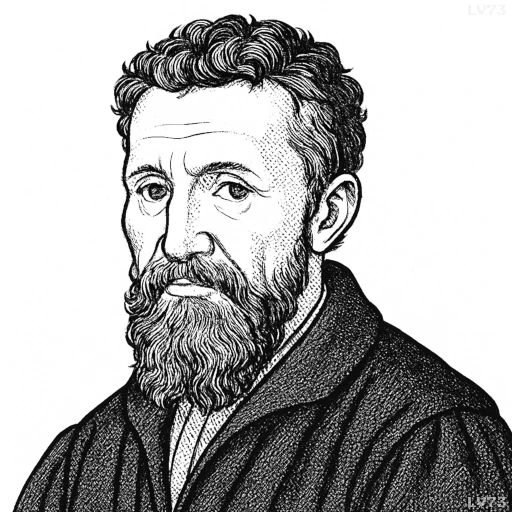“I am a poor man and of little worth, who is laboring in that art that God has given me in order to extend my life as long as possible.”

- March 6, 1475 – February 18, 1564
- Born in the Republic of Florence (now Italy)
- Sculptor, painter, architect, poet
table of contents
Quote
“I am a poor man and of little worth, who is laboring in that art that God has given me in order to extend my life as long as possible.”
Explanation
In this quote, Michelangelo humbly expresses his sense of personal insignificance and humility, despite his extraordinary accomplishments in the realm of art. He acknowledges that his worth is not based on wealth or status, but on his talent—a gift that he believes comes from God. The idea of working to “extend his life” through his art speaks to the timeless nature of creative expression. Michelangelo suggests that through his work, which he regards as divinely inspired, he can achieve a kind of immortality, ensuring his name and contributions live on long after his death. The notion of laboring in art to prolong his existence points to the artist’s desire to leave a legacy that will outlast his physical life.
This perspective aligns with Renaissance humanism, which placed great value on the individual and their ability to shape the world through intellect and creativity. For artists like Michelangelo, their work was not just a means of personal fulfillment or financial gain, but a way to serve higher purposes—to connect with divine ideals and to achieve a sense of immortality through artistic expression. By focusing on the divine nature of his talent and his work, Michelangelo viewed himself as part of a greater creative plan, where his contributions would contribute to a lasting cultural legacy.
In modern terms, this quote speaks to the enduring power of art and creativity as a means of leaving a personal legacy. In a world where many people seek material success or fame, Michelangelo’s words suggest that true fulfillment comes from using one’s talents in ways that can have a lasting impact. In today’s context, artists, writers, musicians, and thinkers often view their work as a means of creating something that transcends their own time and self, offering the possibility of eternal relevance through their contributions to culture, society, or humanity.
Would you like to share your impressions or related stories about this quote in the comments section?




